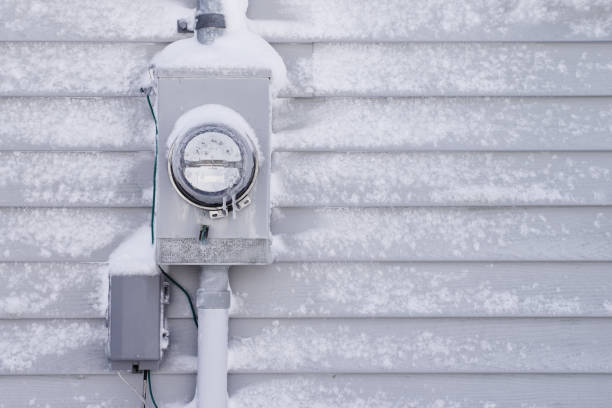Alberta to pay utility providers estimated $15M to hand out electricity rebates

After making a killing selling electricity last winter, with one report showing Alberta utility providers quintupled profits in that time period, those same providers are now charging the provincial government an ‘administrative fee’ to roll out relief.
The province’s electricity rebate program which is expected to show up on July bills anticipates around 1.9 million ratepayers will be eligible to receive $50 credits on their next three bills, totaling $150.
However, the 40 utility providers the government has partnered with to deploy the rebates plan to charge an administrative fee to provide that relief.
Advertisement
The program is expected to cost $300m and go to around 1.9m people.
So, providers will charge around $8 per $150 rebate distributed.
Minister Dale Nally's office confirms the $300m incl. admin costs but refused to confirm the $15m figure. #abpoli #ableg —HIS OFFICE'S STATEMENT: pic.twitter.com/OMNIy9B2SF
— Saif Kaisar (@StaySaif) June 24, 2022
Advertisement
The program is expected to cost $300 million, meaning utility providers will be making around $8 per $150 rebate they issue.
So, they’re charging an estimated $15.2m of taxpayer money to hand out government money back to taxpayers.
“Utility companies seem to be gouging consumers and the government now even more through this program when it’s supposed to provide relief,” said Bradley Lafortune, Executive Director of Public Interest Alberta.
“It’s almost shocking that this is the way they structured this program. It’s not what people were expecting, it’s certainly not what we were advocating for. It’s sort of [like utility companies] skimming off a little bit more profit to administer this rebate program. That’s something that I don’t think will sit well with Albertans.”
Advertisement
Related Article: Albertans to receive three $50 electricity rebates beginning in July
CityNews Calgary reached out to the Independent Power Producers Society of Alberta, which has more than 100 members that operate nearly 100% of Alberta’s power supply, but it declined to comment.
Associate Minister of Natural Gas and Electricity Dale Nally’s office explains while the $300 million accounts for the administrative costs, it’s just an estimate of the total program cost.
“An administrative cost to deploy the rebates is a given, and we determined the most efficient spend of taxpayer dollars to administer the rebates was to have retailers amend their billing systems and provide rebates directly on bills,” his office said in a statement to CityNews.
“We found other program delivery methods would be less efficient and more burdensome for ratepayers as well. The over 1.9 million ratepayers that will be eligible is an estimate, as is the $300 million program cost. All the incurred administration fees will be determined afterwards and scrutinized before reimbursement, but are included in the total program estimate.”
Related Article: Albertans in mounting debt struggle to get help: “Things just get right out of control.”
Despite having included the administrative costs in their program estimate, Nally’s office refused to provide us with a breakdown of how much those administrative fees will be.
Advertisement
Only repeatedly explaining the rebate program would ensure minimal administrative costs.
“Using approaches like mailing rebate cheques directly to consumers would likely have been more costly, require significant government FTEs, and be less effective than the direct-to-bill approach that we have taken,” his office added.
Meantime, Alberta’s New Democrats are confused over the government’s approach.
“The UCP has taken a straightforward idea and bogged it down in layers of bureaucratic red tape. This is gross incompetence by the UCP. They need to figure out a way to ensure every single dollar goes to helping Albertans,” said Kathleen Ganley, NDP Energy Critic.
“At a time when electricity prices are so high, and utility companies are seeing increased profits, the UCP has decided to pad these profits with Albertans’ tax dollars. This money belongs to Albertans and should be used to help Albertans pay their bills, not utility companies’ bottom line.
Advertisement
Related Article: Albertans warned about text message energy rebate scam
When it comes to who qualifies, the government assured CityNews anyone who may have moved or switched providers since winter will still receive their $150 rebate.
“All customers who have consumed electricity within the past calendar year, have an active site connected to the distribution system, and fall within all eligibility criteria will receive the rebates, regardless of whether they are on the regulated rate, or have a competitive contract,” Nally’s office said.
However, if you pay your landlord or a condo corporation electricity costs instead of a utility provider directly, then you likely won’t be receiving any relief.
If only one main unit is technically connected to the distribution system, then only that unit will receive the rebate.
“It’s just a drop in the bucket, it’s a drop in the bucket that not everyone is guaranteed to get, and I think there are going to be many, many, Albertans who won’t receive relief and are going to be very upset about that because they were expecting something very different from this government,” Lafortune responded.
Advertisement
“The so-called solutions they’re coming up with after months and months and months of saying ‘Albertans, stay tuned’ ends up being basically a racket to keep these companies whole and pass on profits to these companies, and just a pittance in terms of rebates to Albertans. I just don’t understand it.”
In a statement to CityNews Calgary following the publishing of this story, UtilityNet, which represents over half of the 40 retailers in the province, says it “has no intention of requesting any administrative fees from the government to administer the electricity rebate program,” adding, “we believe that customers are in need of these rebates, and it is counter-productive to charge the government, and therefore the customers, a fee to administer the rebates.”